
Unraveling the Science: How Essential Oil Inhalation Boosts Mood, Cognition, and Relaxation
Introduction:
Essential oils have long been celebrated for their aromatic and therapeutic properties. From ancient civilizations to modern-day wellness practices, the power of essential oils in influencing mood, cognition, and relaxation is widely recognized. But what exactly happens when we inhale these fragrant compounds? Let's delve into the fascinating physiological mechanisms behind essential oil inhalation and its profound effects on our well-being.
Understanding Essential Oils:
Essential oils are natural compounds extracted from plants, capturing their distinctive fragrances and beneficial properties. These oils contain volatile organic compounds that can quickly evaporate into the air, making them perfect for inhalation. Each essential oil boasts a unique chemical composition, contributing to its specific therapeutic effects.
The Science of Inhalation:
When we inhale essential oils, their aromatic molecules travel through the nasal passages and stimulate olfactory receptors. These receptors are directly connected to the limbic system, the part of the brain responsible for emotions, memory, and behavior. As a result, essential oil molecules can immediately affect mood and emotional responses. Different inhalation techniques, each with its unique benefits and applications, can be explored further here
Mood Enhancement:
Certain essential oils, such as lavender, chamomile, and bergamot, are renowned for their mood-enhancing properties. Inhalation of these oils can promote the release of neurotransmitters like serotonin and dopamine, which are associated with feelings of happiness and well-being. Additionally, the calming aroma of these oils can help alleviate stress and anxiety, fostering a sense of tranquility and relaxation.
Cognitive Benefits:
Essential oils are beneficial for mood and cognitive function. Peppermint, rosemary, and lemon essential oils are known for their stimulating effects on mental clarity and focus. Inhaling these invigorating scents can increase alertness, improve concentration, and enhance cognitive performance. This is attributed to the ability of certain aromatic compounds to stimulate brain activity and promote circulation, delivering oxygen and nutrients to brain cells.
Relaxation Response:
One of the most cherished benefits of essential oil inhalation is its ability to induce relaxation and promote better sleep. Oils like lavender, cedarwood, and ylang-ylang possess soothing properties that help calm the mind and body, facilitating a restful night's sleep. Inhalation of these soothing aromas triggers the release of gamma-aminobutyric acid (GABA), a neurotransmitter that promotes relaxation and reduces stress.
Practical Applications:
Incorporating essential oils into your daily routine is simple and versatile. You can diffuse them using a diffuser, add a few drops to a warm bath, or dilute them with a carrier oil for topical application. Experiment with different oils and blends to discover what works best for you and your needs. Whether you're looking to uplift your mood, sharpen your focus, or unwind after a long day, there's an essential oil to suit every occasion.
Conclusion:
The physiological mechanisms behind essential oil inhalation offer profound insights into its therapeutic effects on mood, cognition, and relaxation. By understanding how these aromatic compounds interact with our brain and body, we can harness the power of essential oils to enhance our overall well-being. So, the next time you inhale the soothing scent of lavender or the refreshing aroma of peppermint, know that you're not just indulging in a pleasant fragrance – you're engaging in a therapeutic practice backed by science.
Cautionary Note:
Before using essential oils, conducting a patch test to check for any allergic reactions or sensitivities is crucial. Pregnant or nursing individuals, children, and those with underlying health conditions should consult a healthcare professional before using essential oils. Essential oils are highly concentrated and should be used with caution. Keep out of reach of children and pets. If ingested, seek medical attention immediately. Avoid contact with eyes and mucous membranes. This article is for informational purposes only and does not constitute medical advice.
Transform your senses, nourish your soul – and experience holistic wellness with Ayurblooms.



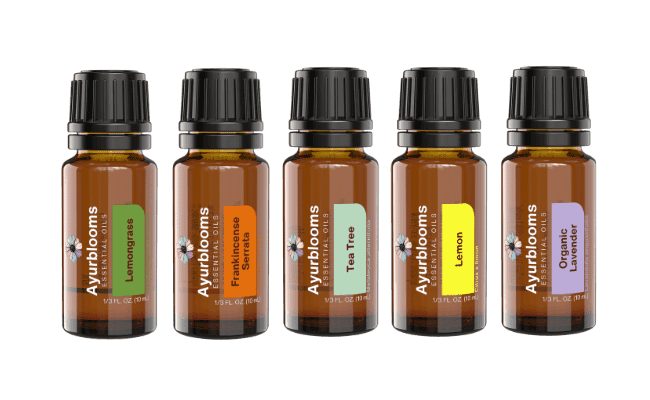


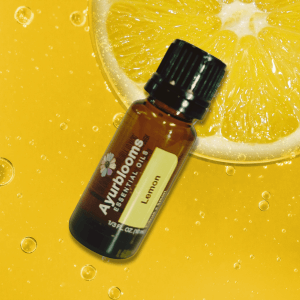
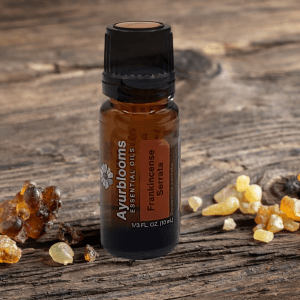
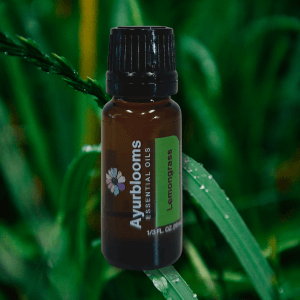
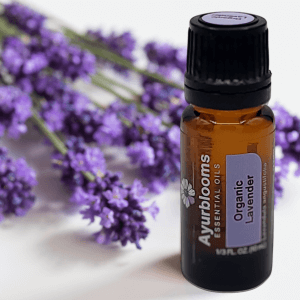
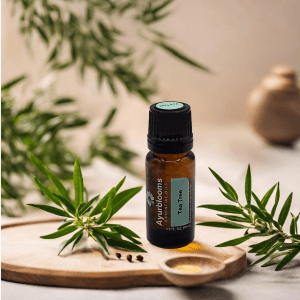
Leave a comment
This site is protected by hCaptcha and the hCaptcha Privacy Policy and Terms of Service apply.